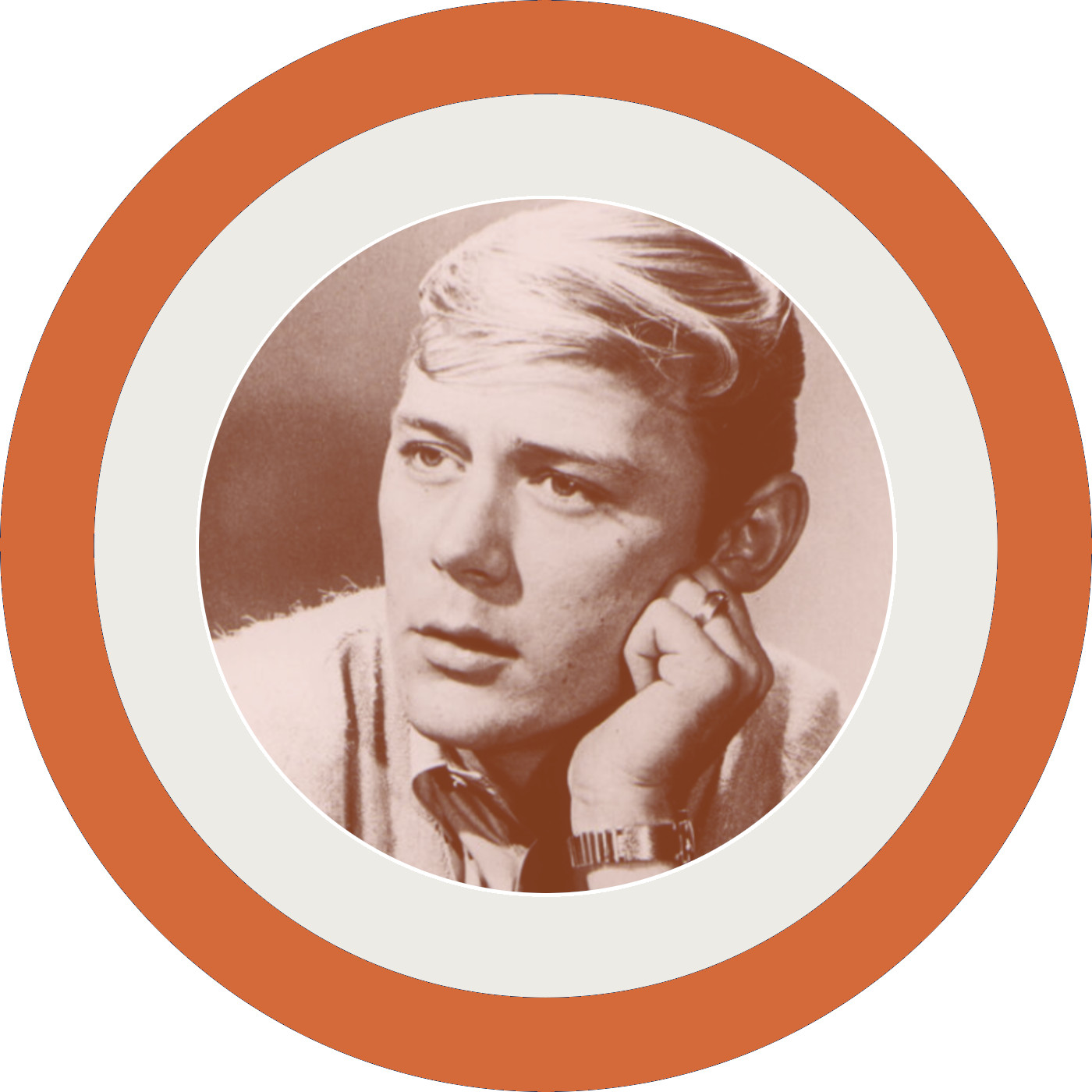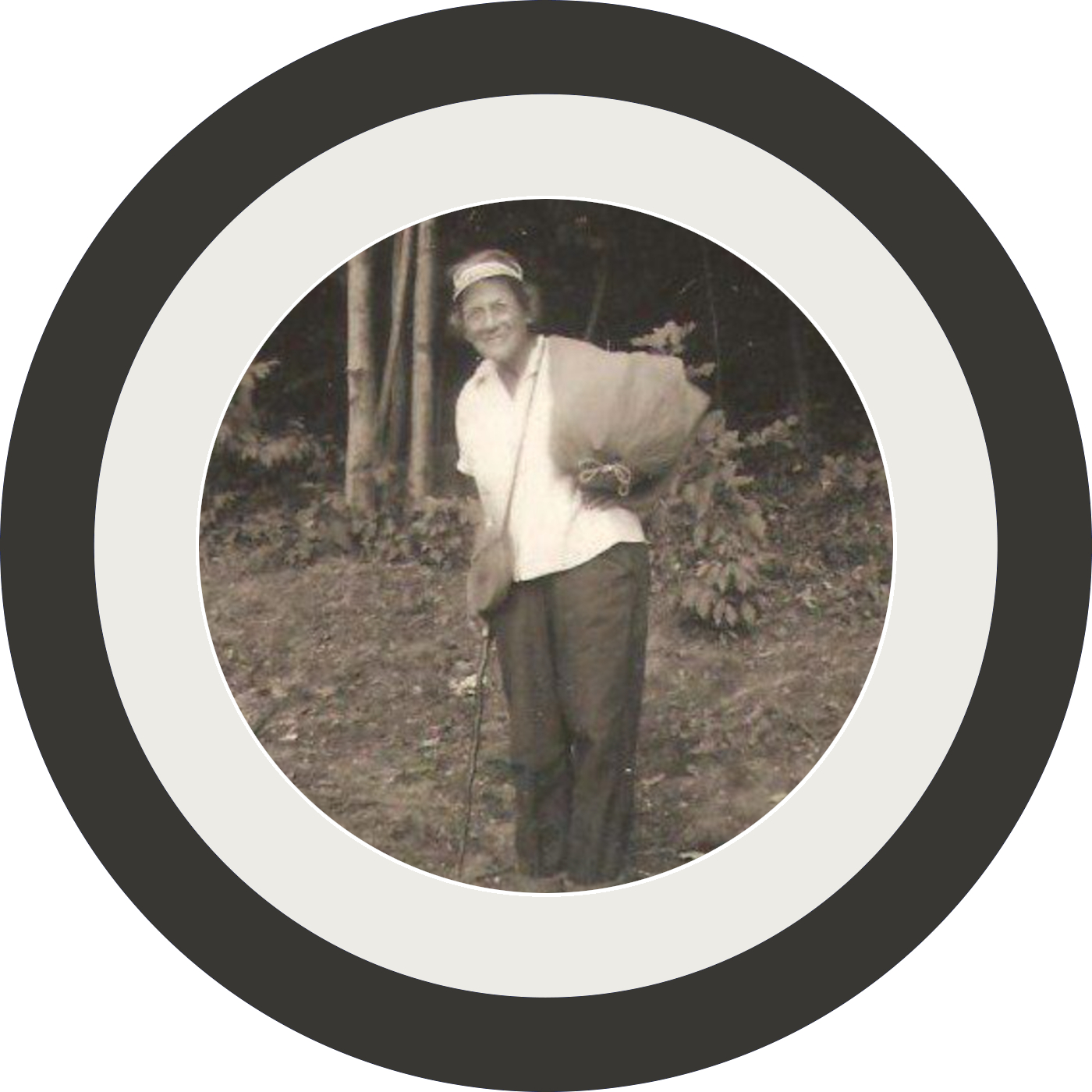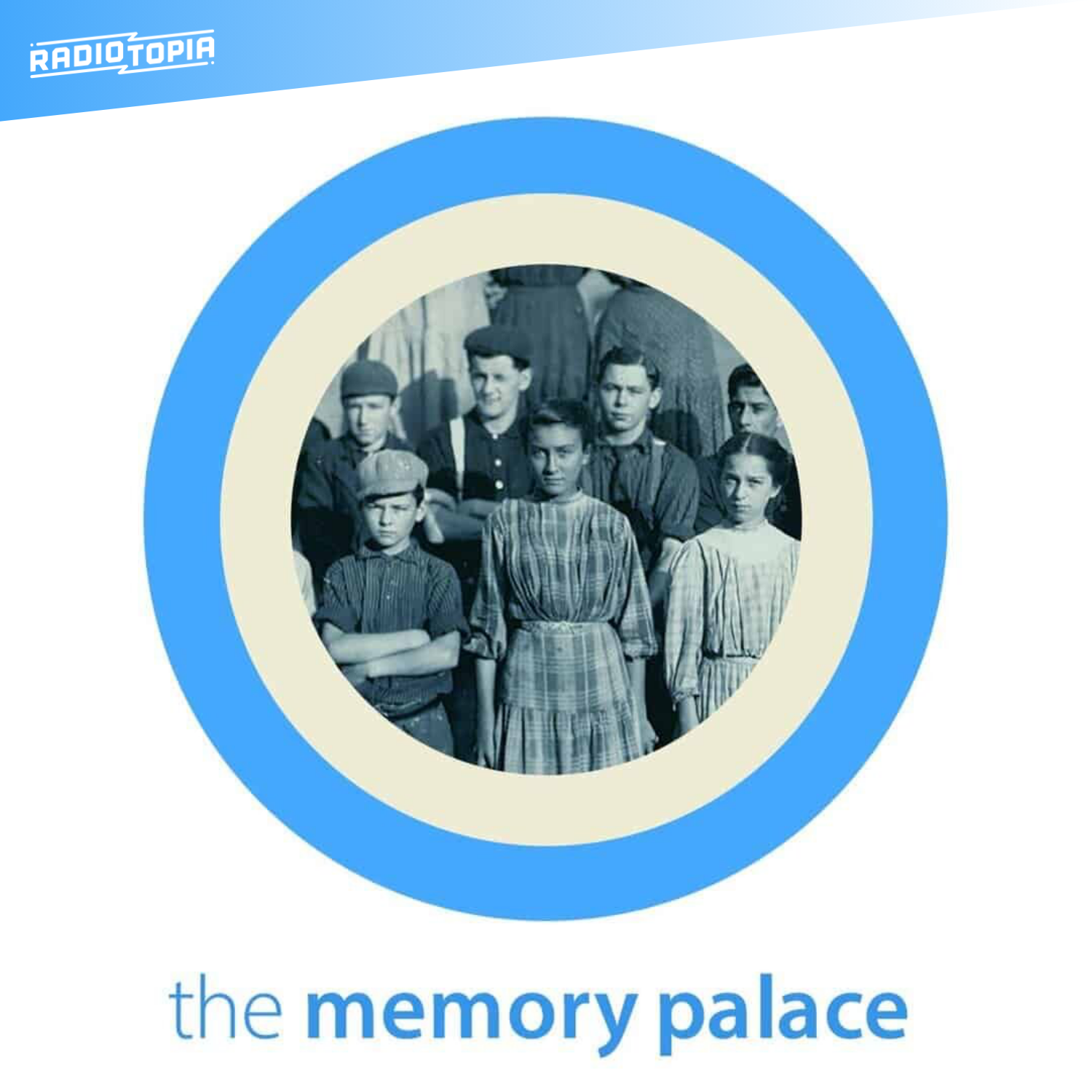Episode 150: Late One Night
Pre-order The Memory Palace book now, dear listener. On Bookshop.org, on Amazon.com, on Barnes & Noble, or directly from Random House.
This episode was originally released in October 2019.
The Memory Palace is a proud member of Radiotopia from PRX. Radiotopia is a collective of independently owned and operated podcasts that’s a part of PRX, a not-for-profit public media company. If you’d like to directly support this show, you can make a donation at Radiotopia.fm/donate. I have recently launched a newsletter. You can subscribe to it at thememorypalacepodcast.substack.com.
Learn about your ad choices: dovetail.prx.org/ad-choices
Press play and read along
Transcript
Speaker 1 This episode of Memory Palace is brought to you by Life Kid. When you're a kid, you need all sorts of help, learning your ABCs, tying your shoes.
Speaker 1 Then you become a teenager and a young adult. And if you are like I was, you need all sorts of help, but you are hardly asking for or accepting any of it.
Speaker 1 Then you get older, you start looking around and thinking there has got to be a better, or faster, or safer way to do this thing,
Speaker 1 whatever that thing might be. And while you are looking around, you will notice that there's a ton of nonsense, there are a lot of quick fixes, a lot of of just mumbo-jumbo.
Speaker 1 But then there's LifeKit, a podcast from NPR, where you can find thoughtful, expert-guided ideas and techniques about tackling issues in this thing we call Life.
Speaker 1 LifeKit delivers strategies to help you make meaningful, sustainable change. And the show is fun.
Speaker 1 You're flipping through episodes and bopping around thinking, yeah, I do kind of want to know what this whole thing is with seed oils and hear from people who really know and sort out the science from the hype and then you put it on and it is delightful and informative.
Speaker 1 And then you're kind of idly listening to this one about how you can avoid buying counterfeit products online and you're like yeah i do that technique and yeah i know that one too and yeah sure that one i'm no dummy but then you hear a couple more and you're like oh shoot yeah i almost fell for that yesterday and oh yeah i need that one for my back pocket LifeKit isn't just another podcast about self-improvement, it is about understanding how to live a better life starting now.
Speaker 1 Listen now to the Life Kit podcast from NPR.
Speaker 1
This episode of Memory Palace is brought to you by Progressive Insurance. You chose to hit play on this podcast today.
Smart Choice.
Speaker 1 Make another smart choice with AutoQuote Explorer to compare rates from multiple car insurance companies all at once. Try it at progressive.com.
Speaker 1 Progressive Casualty Insurance Company and affiliates, not available in all states or situations. Prices vary based on how you buy.
Speaker 1 Hey folks, you are about to hear one of my very favorite Memory Palace stories.
Speaker 1 I have been doing the show for 15 years, and this is one of the ones that I feel like speaks to what this show does well. And I am re-releasing it for two reasons.
Speaker 1 One, because it is one of my favorite Halloween stories, and it is just about Halloween. And two, because I need your help.
Speaker 1 If you are a long-time listener to the show, I've got a book coming out on November 19th, and I am trying to make sure that people find out about this book and find out about the show.
Speaker 1 So if there is someone in your life who you might want to introduce to the Memory Palace, I think this is a good episode for them to hear. You can share this episode, or any of your favorite episodes.
Speaker 1 And thanks so much. This is Late One Night.
Speaker 1 This is the Memory Palace. I'm Nate DeMayo.
Speaker 1
The sound of the chains. The creaking door.
The lumbering footsteps.
Speaker 1 They'd recorded all that before Bobby had shown up in the studio, right on Sunset Boulevard. A stone's throw from Hollywood High.
Speaker 1 That location alone still had some magic in it for Bobby Pickett, Only six years since he'd graduated high school himself, on the wrong side of the tracks in Boston.
Speaker 1 Not long after his ill-fated stint in post-war Korea, all kitchen duty and bordellos and blown curfews and court-martials.
Speaker 1 And just months since he'd come out to California to make it, to take a chance on his henchman to the teen bully in a beach party movie Good Looks.
Speaker 1
and his fourth best singer in a five-man boy band voice. But he was starting to find his footing.
Make friends, make connections.
Speaker 1 Meet that guy at the bar who knows the girl who works on the desk of some agent, who knows this producer who knows this woman who's one of the mistresses to the aging actor.
Speaker 1 He used to play the buttoned-up dad on that sitcom and is trying to pull together his next project.
Speaker 1 That whole hopscotch of happenstance and hustle that can look, in the right light, the right number of drinks into the right night. Like a straight line to start him.
Speaker 1 He'd been having a blast, but didn't really have that much to show for it beyond stories so far. But there he was, in an honest to goodness recording studio, in Hollywood.
Speaker 1 He even wore a pork pie hat for the occasion, just like the one Sinatra wore in the photo on the back cover of In the Wee Small Hours of the Morning.
Speaker 1
Now make no mistake, he knew he was no Sinatra, but he knew he didn't need to be. Not for this.
In a way, he'd been preparing to sing this song for years.
Speaker 1 Since he was a kid walking home with his buddies after some creature double feature some Saturday afternoon. Or cracking them up with his impressions at Revia Beach.
Speaker 1 This wasn't the dream, according to Song.
Speaker 1
It was a lark. It was a stepping stone.
Something to do before he landed that pilot, that scene-stealing walk-on, that movie role that would make him a matinee idol. This wasn't the dream.
Speaker 1
But it was coming. He could feel it.
How could he not, as he stepped in front of the mic.
Speaker 1 Lock of his blonde hair sneaking out of his Sinatra hat.
Speaker 1 In a real Hollywood studio, with a real engineer twisting knobs and flipping switches.
Speaker 1 And a real record producer taking a drag from his cigarette and giving him the thumbs up.
Speaker 1 Then rolling playback.
Speaker 1 Then Bobby just goes.
Speaker 1
Beheld an eerie snow. He nails it for my monster for a while.
One tape.
Speaker 1 He did the match,
Speaker 1 he did the monster match.
Speaker 1 He knew the song inside and out.
Speaker 1 Writing it, it'd all come out in a rush.
Speaker 1
He and his buddy Lenny, just laughing and riffing over and over over a four-chord progression they'd heard a million times in a million songs. It was so fun.
They'd trade off lines.
Speaker 1
They pitched on the guest list, the Wolfman, the zombies having fun. Dracula would have to bring his son because it would rhyme with fun.
Bobby named the band at the monster party, the coffin bangers.
Speaker 1 Lenny named the backup singers, the Crip Kicker 5.
Speaker 1 It was so easy. Not because writing a novelty song is easy, but when you start with a premise that's kind of genius that Dr.
Speaker 1 Frankenstein had been working in his lab late one night, and the second the monster rises up from his slab, he starts a dance graze. The song writes itself in there.
Speaker 1 It took them 30 minutes, just half an hour, when they could have been doing anything else,
Speaker 1 but decided to write a goofy song about monsters.
Speaker 1
That's Boggy Pickett doing all the male voices. Dr.
Frankenstein, his monster. There's a little bit of Igor in there, I think.
Speaker 1 And that is him as Dracula, however many centuries old, rising from his coffin to complain about the kids today.
Speaker 1 And then the producer says, we got it. And they go back into the booth and they listen back over the studio speakers.
Speaker 1 Three minutes and 12 seconds of catchy pop absurdity.
Speaker 1 Monster Mash was released on Garpax Records in August of 1962.
Speaker 1 The B-side, the song on the other side of the record, was hacked together from outtakes. It's called Monster's Mash Party.
Speaker 1 It's a different version of the instrumental backing track of Monster Mash with some pointless noodling on a B3 organ and Bobby ad-libbing some bits in the various voices.
Speaker 1 And it is borderline and listenable. But the A-side.
Speaker 1 This is the part of the story when the record spins. We see our hero mugging and vamping and leaving it all on stage at a honky-tonk in Dallas to six bewildered people.
Speaker 1 But then he's in a vets hall in Lewiston, Maine, and teenage girls are screaming, looking up from the crowd with hearts in their eyes. And then he is lip-syncing at a local news show in Bakersfield.
Speaker 1 And then he is in Hollywood, backed up by a young band called the Beach Boys.
Speaker 1 On October 20th, just in time for Halloween, Monster Mash by Bobby Boris Pickett, the record company threw in the Boris to make it sound spookier, was at the top of the Billboard singles chart.
Speaker 1
And then everything was happening all at once. American bandstand, commercials.
He lands a role in a pilot for a TV show.
Speaker 1 A second banana to Ricardo Montebon.
Speaker 1
He goes on game shows. There are groupies, famous friends, wild parties.
Someone tells him that Elvis asked one of his boys to get him a copy of the 45.
Speaker 1
The king had heard people talking about this monster match but hadn't heard it yet. Ultimately, said it was the dumbest thing he'd ever listened to.
But still,
Speaker 1
Elvis had heard Bobby's record. Bobby was on his way.
He could feel it.
Speaker 1 The course of his life set.
Speaker 1 By a half an hour spent goofing around in the piano one day with his buddy Lenny. Set by a 3-minute and 12-second pop song.
Speaker 1
This is the part of the story when things start to go wrong. You have likely heard enough tales of Hollywood to have seen it coming.
They do have their their familiar shapes and rhythms.
Speaker 1 I am recording this in a room in my house with a view of the Griffiths Observatory up there in the Hollywood Hills, where James Dean and Natalie Wood and Sal Minio's characters played out the tragic end of Reb Without a Cause before each of those actors went off to meet their own tragic ends.
Speaker 1 Bobby Pickett's story isn't one of those Hollywood tragedies. It doesn't end abruptly with some metaphorical needle scratch.
Speaker 1 Though it felt that way to him, as he describes it in his memoir, published by a very small press in 2005, just two years before his death of leukemia at the age of 69.
Speaker 1 As on the day his pilot was set to air, a year after his number one single had made him the hot young thing in town, the very day his career was supposed to catch fire, Kennedy got shot.
Speaker 1 And then they preempted his pilot and Then they never got around to airing it. And he was sure everything was over right then.
Speaker 1 But instead, he had just flipped over to the B-side of his career.
Speaker 1 When the bookings slow down and your calls stop getting returned, when you start looking for someone to blame.
Speaker 1
Though usually Bobby Pickett blamed himself, why did he let them call him Boris? Bobby Pickett was a cool name. Bobby Boris Pickett.
What was that? Why did he have to make those faces when he sang?
Speaker 1 Now he needed to do it to make all the monster voices. And yes, granted, where would he be without the Monster Voices? But still, it looked ridiculous.
Speaker 1 In that first year he was always touring and Monster Mash wouldn't have broken so big if he hadn't have done all that touring. But still, maybe he should have been trying to write a follow-up.
Speaker 1 A great single that could have showed he was more than a one-hit wonder. Instead, he ended up dashing off an LP's worth of Monster Mash clones.
Speaker 1 Bloodbank Blues, Graveyard Shift, The Sinister Stomp, Me and My Mummy. It's all okay.
Speaker 1 But if he was going to spend his time on something that was just going to sell okay, shouldn't he have taken a risk? Tried to rebrand himself. Instead of chasing the same high?
Speaker 1
Instead of recording Monster Holiday just in time for Christmas? There were nights when he'd run into stars. Real ones.
People he'd known a bit back when they were all just hustling.
Speaker 1 Jack Nicholson, Harry Dean Stanton. Once he got backstage after seeing Bobby Darren in Miami, went up to him and said, remember when when we were on the same bill some years back?
Speaker 1
Sure, sure, the Monster Mash guy. Boris with the funny faces, and yeah, that was him.
Probably always would be.
Speaker 1 And there are worse fates, though it may not always feel that way, than being a has-been. At least you had been.
Speaker 1 Not everyone gets to be.
Speaker 1 And there were times there. When life's jukebox flipped the record over.
Speaker 1
Just in time. Out of nowhere.
And Bobby would get her residuals check just when things were getting desperate. And then once in 1973, out of nowhere, he never really figured out why.
Speaker 1 They re-released Monster Mash and it took off again.
Speaker 1 Brought him back to the top 40, peaked at number 10.
Speaker 1 11 years later,
Speaker 1 it was great. He pulled the band back together,
Speaker 1 played some big shows, tried to get something going again, but
Speaker 1 never really got it going again.
Speaker 1 He released a Star Trek parody called Star Trek.
Speaker 1 Flopped, but one night soon thereafter in New York, just as Saturday Night Live was taking off, he saw the cast and its creator Lorne Michaels all out for dinner.
Speaker 1 Saw them as fellow travelers, entertainers.
Speaker 1
And he went up and introduced himself. Asked if they had heard Star Trek, and they were not impressed.
But Chevy Chase is nice. I always remembered that.
Always liked Chevy for that.
Speaker 1
And there were darker days when he would wonder if his record was ever going to flip back again. He lost a child.
He got divorced. One time he and some friends bought a bunch of cocaine in Columbia.
Speaker 1 Kilos of the stuff would have made hundreds of thousands of dollars if they were able to sell it back in LA as planned. But he lost it all.
Speaker 1 Went home with nothing, barely made it back alive, or at least not in jail.
Speaker 1 And there were years he spent lamenting how his deals were written. How his labels should have been out there making him a fortune on licensing opportunities, but was blowing it.
Speaker 1 And then Monster Rap didn't blow up like he'd hoped. It was the 80s, rap was big, he figured, you know.
Speaker 1
And so there were years, most years, when he'd just wait for October, when there would be someone who'd want to hear him sing a song. Some gig, some appearance.
Maybe a convention.
Speaker 1
Something to help with the rent. Nights when he couldn't believe he was singing this same song.
15, 20, 25, 35 years later. Three minutes and 12 seconds.
Speaker 1 A half an hour spent goofing around in 1962 that constrained him, it felt like.
Speaker 1
That defined him, that ruined him. It could seem some nights.
Three minutes and 12 seconds. A half hour out of his life when he could have been doing anything else.
Speaker 1 But there is a flip side to that story too.
Speaker 1 And I suggest we let that one spin
Speaker 1 and keep bringing the arm back over and over.
Speaker 1
Let it play on repeat. Three minutes and 12 seconds, a half hour when he could have been doing anything else.
That gave him an extraordinary life.
Speaker 1 Not just American bandstand, not just a number one record, but a lifetime of October's.
Speaker 1 when he'd hear himself on the radio while coming home some night on the 101, the windows down, the air air starting to finally feel like fall.
Speaker 1
Or he'd hear it online at the supermarket and the checkout guy would have no idea. Maybe Bobby would tell him.
Or maybe it would be his secret. It would feel good either way.
Speaker 1 And those nights, always at night, on some carnival midway or headlining some Halloween hayride weekend spooktacular in western Massachusetts, say.
Speaker 1 when he'd take the stage and make the faces and say those same old lines, and people would love it. He'd be 45 years old or 55.
Speaker 1 He'd be a 63-year-old man
Speaker 1
who still had it. You could still make him laugh and still make him dance.
The kids, their parents, everyone. People who knew all the words.
Maybe some people who knew like he did.
Speaker 1 That a lot of Hollywood stories have far worse endings than his.
Speaker 1 But you get to do something you love at 45 or 55 as a 63 year old man, even if you have to wait all year to get to do it, can feel like a miracle some nights when he realized that people still loved his song, that he never had to wonder whatever happened to the Transylvania twist.
Speaker 1 Because every Halloween, they do the mash.
Speaker 1 This episode of The Memory Palace was written and produced by me, Nate Tomeo, in October of 2019 with research assistance from Eliza McGraw and engineering assistance from Elizabeth O'Bear.
Speaker 1 The show is a proud member of Radiotopia, a network of individually owned and operated, independent, listener-supported podcasts from PRX, a not-for-profit public media company.
Speaker 1 You can follow me on Twitter and Facebook at TheMemory Palace, on Instagram and threads at thememory palace podcast, on Substack at thememorypalaspodcast, dot substack.com.
Speaker 1 And you can right now purchase The Memory Palace, true short stories of the past, my book from Random House.
Speaker 1 If you're listening to this before November 19th, 2024, you can pre-order it, which would help me tremendously.
Speaker 1 If you are listening to it after, well, you are living in a world in which which it just be there right at your local bookstore and certainly available with a click or two in all the usual online places i am extremely proud of this book it collects favorite stories from the podcast has new stories that will only appear in the book and i couldn't be more excited about the cover and the illustrations and the found photographs it's a beautiful thing i really think that a lot of you are really going to love it and want it on your shelf for years to come.
Speaker 1
Thank you for for being a part of this thing with me. Thank you for listening.
And there are more stories to come.
Speaker 1 Radiotopia
Speaker 1 from PRX.





